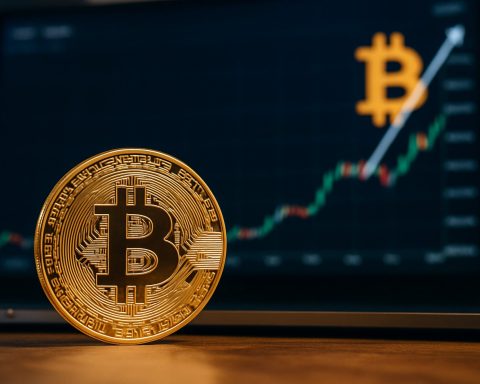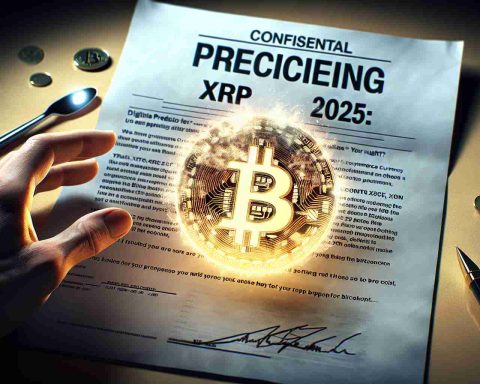- Former President Trump declared Bitcoin a national reserve asset to be sourced from seized assets, not new purchases.
- The plan aims to stabilize crypto asset prices without tapping into taxpayer funds, though skepticism persists.
- The government will hold confiscated Bitcoin, adding scarcity but not reintroducing it to the market.
- Treasury Secretary Scott Bastion mentioned future strategies remain uncertain, raising questions within the crypto community.
- Reactions are mixed, reflecting tensions between the appeal of legitimacy and the fear of losing crypto’s decentralized essence.
- Discussion is rife on social media, highlighting ongoing debates about government involvement in a decentralized market.
- The situation underscores the complexity of achieving a truly independent financial system within the global economy.
A startling announcement from former President Donald Trump has sent ripples of anticipation and skepticism through the cryptocurrency world. Imagine the surprise of Crypto Broce, an ardent supporter of digital currencies, when Trump designated Bitcoin a national reserve asset. The government’s intent? To fortify its holdings with Bitcoin seized from criminal or civil asset forfeitures, all without dipping into taxpayer funds.
This ambitious move seems like the perfect recipe to stir the pot in the world of crypto enthusiasts—who had hoped for the federal government to purchase Bitcoin actively, akin to its strategy for oil reserves. Such a course of action would likely drive up Bitcoin’s price through supply and demand dynamics. However, the announcement dashed these expectations, clarifying that the government will not augment its reserves through additional purchases.
David Sacks, often found musing on platforms like X, explained that while the federal government might hold onto confiscated Bitcoin, the currency will not be sold back into the market, retaining a measure of scarcity. This protective measure should theoretically stabilize crypto asset prices, offering a fragile sense of relief to investors concerned about volatility amid underlying value instability. Yet, the plan is far from universally acclaimed within the crypto community.
Treasury Secretary Scott Bastion’s response painted a vague picture of future governmental strategies. He indicated that the seized crypto assets would be safeguarded initially, with future decisions pending regarding potential acquisitions. This discretionary approach leaves ample room for debate about the true impact on market stability and government involvement.
Despite assurances that any acquisition would be budget-neutral, skepticism remains high among taxpayers who fear indirect expenses. On platforms like Reddit’s Crypto Subreddit, where past endeavors like the famed Trump and Melania “Rugpoles” have left investors wary, discussion has turned lively and critical. Questions abound regarding whether this maneuver signifies a deeper governmental attempt to assert control over a decentralized market initially designed to operate free from such oversight.
The essence of cryptocurrency was always its promise of a decentralized financial system, free from the clutches of national influence. Yet, it seems the reality of independence is more complex than the utopian vision. This maneuver by Trump’s administration represents a significant intervention in crypto markets by the world’s largest economy and has reignited debate over the dream versus the reality of decentralization.
As the dust settles, the crypto community remains split. On one side lies the allure of mainstream legitimacy; on the other, the fear of losing the foundational tenets of independence and decentralization. In truth, this gambit by a former political heavyweight exposes the friction between dreamers of a decentralized future and the entrenched powers of a global economy. The saga continues, adding another chapter to the unpredictable journey of cryptocurrency.
Is Bitcoin Becoming America’s Secret Weapon? Uncover the Truth!
Analyzing Trump’s Move to Designate Bitcoin as a National Reserve Asset
Context and Implications
In a surprising turn of events, former President Donald Trump has shaken the cryptocurrency landscape by proposing Bitcoin as a national reserve asset. This move is intended to bolster government reserves with Bitcoin seized from illegal activities rather than purchasing it on the open market. Although this announcement has excited some crypto enthusiasts, it has also raised significant concerns and debates within the community.
Market Dynamics and Potential Impact
1. Impact on Bitcoin’s Price: By not selling seized Bitcoin back into the market, the federal government inadvertently supports Bitcoin’s price stability. Theoretically, this decision should create scarcity, which might sustain or even elevate Bitcoin’s market value over time. However, the absence of direct government purchasing might mitigate the dramatic price surge anticipated by some investors.
2. Economic Neutrality: While the plan prides itself on being budget-neutral, questions about hidden costs or indirect economic ramifications remain. Some fear that managing these assets could incur unforeseen expenses, indirectly affecting taxpayers.
3. Government Influence: Many are concerned that using government-seized crypto assets could signify an overreach, threatening the decentralized ethos of cryptocurrencies. This fear is compounded by historical skepticism towards government involvement in sectors designed for independence.
4. Market Volatility: Even with stabilized prices due to government hoarding, the inherent volatility of cryptocurrencies remains unresolved. Investor skepticism continues, especially in the light of previous crypto market instabilities driven by regulatory news or external economic factors.
Security and Sustainability Concerns
1. Crypto Security: Handling and storing Bitcoin securely remains a challenge, even for governmental bodies. The potential vulnerability of these assets to hacking or mismanagement could pose a significant risk.
2. Sustainability Issues: Bitcoin mining’s environmental impact is a perennial concern. As governments or entities stockpile Bitcoin, questions about encouraging environmentally friendly practices become more pressing.
Industry Trends and Future Predictions
1. Rising Institutional Interest: The government’s involvement, despite fears, could signify a mainstream institutional acceptance of cryptocurrencies. This might foster a wave of institutional investments, further legitimizing the market.
2. Global Policy Evolution: Other nations may observe and potentially emulate similar strategies, using confiscated digital assets to strengthen national reserves. Such actions could have implications for international trade and monetary policy.
3. Regulatory Challenges: Increased government participation may necessitate more robust regulatory frameworks, potentially leading to stricter oversight, compliance requirements, and redefining cryptocurrency’s role in the economy.
FAQs and Pressing Questions
– How Will This Affect the Average Bitcoin Investor? While market stability might reassure investors, the potential for regulation could impact trading freedoms and privacy standards.
– Is There a Risk of Over-regulation? Yes, the government’s move could open the door for further legislative measures, potentially undermining the decentralized value proposition of cryptocurrencies.
– What are the Long-term Effects on Decentralization? The balance between achieving mainstream legitimacy and retaining decentralized independence remains a pivotal challenge for the crypto community.
Actionable Recommendations
1. Stay Informed: Keep abreast of government policy changes and crypto market trends.
2. Evaluate Risk Tolerance: Understand the implications of potential regulations on your investment strategies.
3. Consider Diversification: Mitigate risks by diversifying your cryptocurrency investments.
For more insights into cryptocurrency trends and advice, visit Coinbase for expert resources.
In conclusion, while Trump’s designation of Bitcoin as a national reserve asset presents a notable step towards integrating cryptocurrencies into mainstream economies, it also reopens critical discussions about regulation and the future of decentralized finance.











